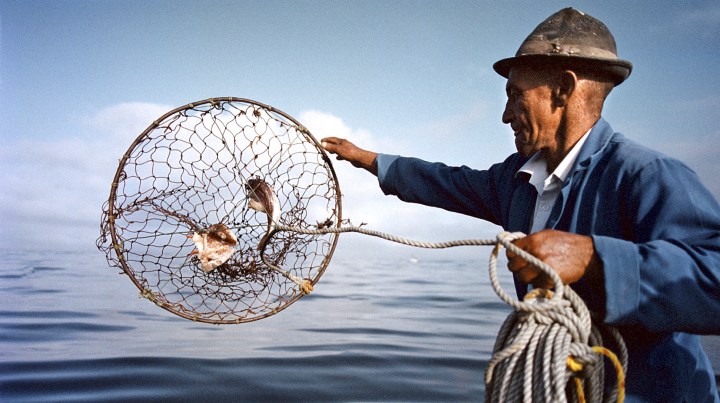FOOD JUSTICE OP-ED
Covid-19 deepened the challenges faced by small-scale fishers in South Africa

The theme for World Food Day 2021 is ‘Our actions are our future — Better production, better nutrition, a better environment and a better life’. Let us look towards the future with recommendations for building a more resilient, equitable, and sustainable food system, to the benefit of women as food system actors.
Coastal small-scale fishing communities in South Africa are often marginal communities situated in rural areas, with limited job and income opportunities. Fishing plays an extremely important role in ensuring local food and nutrition security as well as in developing the local economy.
Fish is an integral part of the diet of coastal communities, providing important micronutrients and ensuring a more holistic nutrient profile. Fishing also represents more than access to livelihoods, food, and nutrition; it represents a cultural, traditional, and historical connection to their way of life, to the ocean, and to their ancestors.
World Food Day on 16 October 2021, was an opportunity to reflect on the past year and a half of South Africa under the lockdowns and regulations imposed by the government in response to the Covid-19 pandemic, and examine the impact that this has had on the small-scale fisheries food system.
When we do this we find that the restrictions that were implemented in response to Covid-19 have highlighted the flaws in the system and deepened the existing challenges that have been faced by small-scale fishers. This food system has exhibited a lack of resilience in the face of a moment of crisis. This has emphasised the need for the development of more localised markets, the recognition of the sector as an important provider of nutritious food, and the prioritisation of small-scale fishing in policy.
For example, small-scale fishers in the Western Cape export a large amount of their catch to the Chinese and European markets, and also supply the tourist and restaurant markets with fresh fish, illustrating a reliance on what are termed ‘long value chains’. Long value chains include multiple points of value-adding activities with different food system actors, such as traders, marketers, and markets. Fish passes hands multiple times between producer and consumer, resulting in increased travel time as well as decreased income for the producer.
The export ban and the closure of restaurants resulted in a sudden decrease in demand and therefore a drastic drop in fish prices.
Small-scale fishers, despite being recognised as essential service providers on 26 March 2020 and being able to practise their livelihood, were unable to sell their catch and lost out on a large portion of their annual income. This case illustrates the lack of resilience in long value chains. Shorter value chains and more localised markets better withstand shocks to the system while keeping control local and ensuring community food security.
State support for the sector during the lockdowns was also lacking.
This is evident in the fact that the informal economy and the small-scale food systems in South Africa have long been undermined by the dominance of the corporate food system and the support that is provided by the state for the development and enhancement of the formal economy.
A clear bias towards the commercial food system emerged during the pandemic with subsidies and support from the state favouring big industry over small-scale producers. The small-scale fisheries sector did not benefit from the Ters fund because most of them are not formally employed. So people in the industry received no support, financial or other, aside from the social relief of distress grant of R350 a month which, although necessary, failed to meet the food security and household needs.
Looking to the future, a more resilient small-scale fisheries food system would align with the principles of food sovereignty, putting people’s need for food at the centre of policies, localising food systems and valuing food providers and producers, and building on traditional knowledge.
A more resilient food system would keep the highly nutritious food within the community, rather than relying on long value chains and exporting nutritional food sources or feeding into an elite market. A more resilient food system would be supported in keeping the control local, benefiting the broader community, and incorporating and strengthening the role of women in the value chain through the development of cold storage infrastructures and processing facilities.
It is imperative that the implementation of the Small-scale Fisheries Policy of 2012 in the Western Cape is a just, equitable, and inclusive process. The formation of the small-scale fishing cooperatives under the policy needs to include adequate training and a mentorship programme in order to ensure the success of the cooperatives and to allow for the development of the sector and the inclusion and benefit of the broader community. DM/MC
Maia Nangle is the Research and Project Officer at Masifundise Development Trust.
The research that has informed this article has been produced by Masifundise Development Trust and The Institute for Poverty, Land and Agrarian Studies (PLAAS), with the support of the International Development Research Centre (IDRC) which has funded a three-country study in Ghana, Tanzania and South Africa on “The impacts of Covid-19 responses on the political economy of African food systems”.
Listen to the Podcast: Women, fish and Covid impacts on African food systems:
Covid regulations have affected the livelihoods of small-scale fishers across Africa – but in different ways. While many have lost out, the effects vary between classes of boat owners, crew, processors, and traders – and each of these roles is highly gendered, with women playing dominant roles in fish processing and fish trade. In this episode, we speak to three women activists from Ghana, South Africa and Tanzania who work with small-scale fishing communities: Patricia Blankson Akakpo, the Network for Women’s Rights in Ghana, Maia Nangle from Masifundise Development Trust in South Africa and Editrudith Lukanga from Environmental Management for Economic Development in Tanzania.



















Comments - Please login in order to comment.